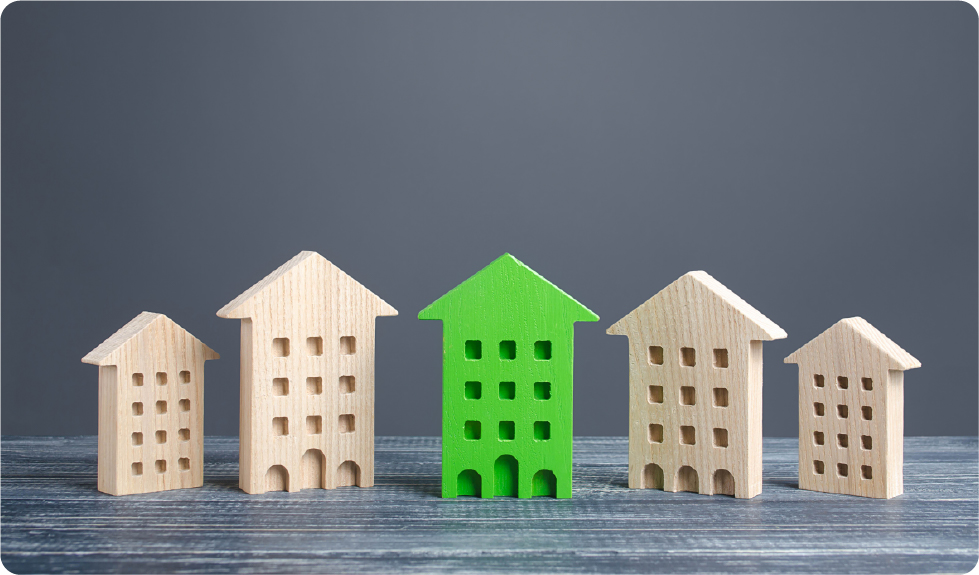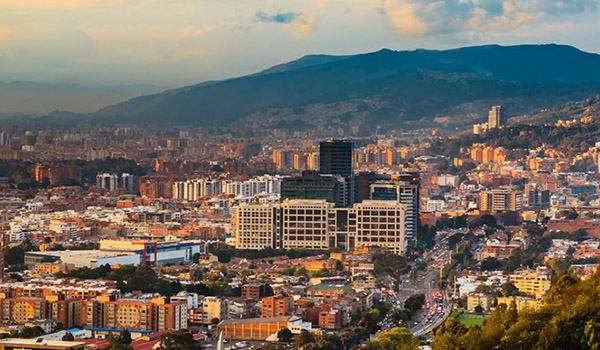Cities Climate Action Project
Tarsheed Categorybronze
Cities Climate Action Project
The Cities Climate Action Project, setup in 2019, aims to deliver better building efficiency policies in cities. It uses a proven framework created through the Building Efficiency Accelerator (BEA) to help city governments, private companies and NGOs work together to deliver energy efficiency in buildings at scale.
Between 2019 - 2020, with the leadership of the Green Building Councils, four policies for increased building efficiency have been approved in the cities of Bogota and Monteria in Colombia, and at the state level in Campeche and Yucatan in Mexico. Another ten policies are currently in development across Latin America in countries like Chile, Costa Rica, El Salvador and Guatemala.
The Challenge
A third of the world’s energy goes into lighting, heating, and cooling buildings. Avoiding dangerous global climate change rests on significantly reducing this consumption. Building efficiency is not only a climate imperative, but a crucial piece of the sustainable development puzzle, estimated to be worth $26 trillion dollars by 2030.
In a region like Latin America, with 624 million habitants and over 80% of the population living in cities in 2019, achieving the goals of the Paris Agreement requires ambitious policies to set a clear path towards decarbonisation by 2050.
Despite the huge size of the buildings and construction sector, it has traditionally been a fragmented one, slowing the scaling of innovation and best practice from one project to another. This is why the right partnerships and collaborative approaches are so important in tapping into the full savings potential that buildings can deliver.
The Solution
Building Efficiency Accelerator (BEA)
The BEA is a partnership platform, working through an international network including Green Building Councils, city governments, businesses and NGOs, to bring about transformational change in building practices at scale.
In 2019, the World Green Building Council (WorldGBC) in partnership with the World Resources Institute and other BEA partners, launched the expansion of this partnership starting with its Americas Region.
The BEA partnership provides committed cities with the technical and strategic tools to design and implement building efficiency measures — from designing a protocol that allows for the local implementation of a national building code, to training local government officials on the fundamentals of implementing such a code.
The beauty of the BEA model is that it expands the capacity of cities through partnerships with a balanced cross-sector approach. This includes working with the right local partners who can provide both technical and industry expertise to ensure that building policies will deliver real impact on the ground.
Partnership for Green Growth and the Global Goals 2030 (P4G)
In addition to the BEA partnership, in 2019 WorldGBC strengthened our efforts with the support of the Partnership for Green Growth and the Global Goals 2030 (P4G).
P4G is an initiative for developing public-private partnerships at scale to deliver on the SDGs and the Paris Climate Agreement, advancing solutions in five key areas: food and agriculture, water, energy, cities and circular economy.
Together, we embarked upon a two-year project to rapidly increase the number of cities across the region which were designing and implementing energy and resource efficiency policies.
The Result
As a result of our work with BEA and P4G, over 90 government officials have actively collaborated with over 100 partners, who delivered technical and legal guidance for each city's policy to be designed and published.
As of early 2021, four policies for increased building efficiency have been approved in the cities of Bogota and Monteria in Colombia, and at the state level in Campeche and Yucatan in Mexico, and another ten are currently in development.
We also have a strong network of twelve cities/states working with our Green Building Councils, who join a total of 25 cities/states participating in the BEA platform across Latin America. In addition to this, we managed to leverage WorldGBC’s Advancing Net Zero project and introduced net zero concepts to this network of cities, helping to get them started on their journey towards energy efficiency and net zero carbon building.
The BEA in Colombia, Mexico and the Region
With a focus in Colombia and Mexico, the BEA project sets ambitious standards and baselines for energy savings in different building typologies, covering both new and existing buildings.
In Bogota, Colombia, the BEA project updated the national energy efficiency building code to set a new baseline which requires all new buildings to achieve 20% energy savings and 30% water savings, starting in 2020. It is projected that this new policy will reduce emissions by improving the performance of 2.5 million homes that are expected to be built in the next thirty years.
In Mexico, the State of Campeche developed a 2021 public policy with mandatory guidelines that incorporate energy efficiency criteria in the operation, purchase, lease, and/or loan of state public buildings (offices, hospitals, schools, etc.). Campeche is intent on leading by example, selecting the State’s Place of Government as the pilot project to design and implement the Energy Management System.
The Mexican State of Yucatan developed a Technical Standard on Energy Efficiency in Buildings of the Public Administration in 2020, and a case study to identify opportunities for introducing technologies with low global warming potential and high-efficiency refrigerants in buildings.
Throughout Central America, the BEA platform has supported efforts in Guatemala, El Salvador and Costa Rica, where a hub of municipalities shared best practice, technical efforts, the assessment of energy savings and other resources with platforms and tools.
This includes the “Building Efficiency Targeting Tool for Energy Retrofits” (BETTER) via a Cooperative Research and Development Agreement between Lawrence Berkeley National Laboratory and Johnson Controls, with support from ICF. This partnership provided technical and strategic tools to design and implement building efficiency measures to over twelve committed cities and states.
Examples of the tools range from designing a protocol that allows for the local implementation to workshops and educational training for all audiences. More than 3,000 local government officials, private sector representatives, academic institutions, and international partners in Latin America participated in online and in-person activities and workshops on the fundamentals of structuring, implementing, measuring and reviewing such a code. In addition, demonstration projects and private sector commitments showcased the economic business case for building efficiency measures. Thus, this partnership paves the way for mass scale uptake of buildings that help us achieve our carbon emission targets.
Next Steps
Ensuring that the policies currently under development go through to implementation.
Cities/states advance their mechanisms for reporting and verification in order to measure real time energy and carbon savings.
Including new cities/states with ambitious net zero targets into the programme. Drafting national decarbonisation roadmaps for the building and construction sector in countries such as Colombia, where the work we have done with the BEA has advanced both existing and new policies in various cities and states Achieving a net zero built environment can only become a reality through radical cross-sector collaboration, including all members of the value chain.
Together we will scale up the achievements of the cities and states involved in the project towards national dialogues. At WorldGBC we know that the solutions to energy efficient, net zero buildings already exist, so it is our mission to galvanise the important work of our global network and catalyse sustainable buildings for everyone everywhere.







